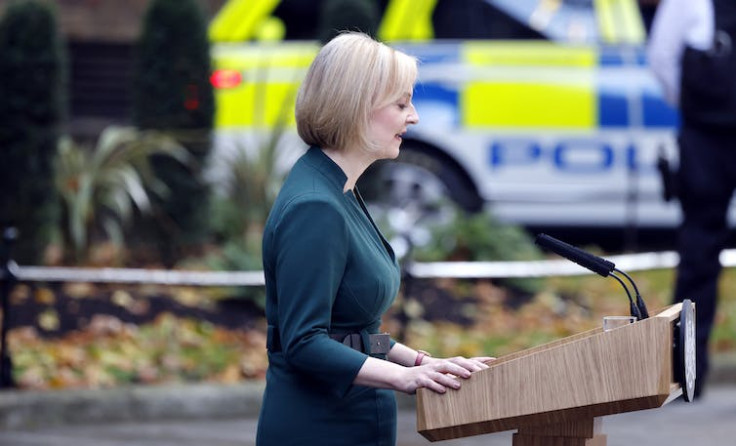IBT Editorial: Liz Truss was only half wrong
Had Truss made a serious attempt to tackle spending and debt, she might still be in Downing Street.

It is a sad fact that decades from now, "Liz Truss" is likely to be little more than an obscure answer to a challenging pub quiz question.
There are many criticisms that one could make of Truss, notably that becoming and being the Prime Minister requires more than simply larping as Margaret Thatcher, something that Theresa May also felt the need to do in her early days.
Be that as it may, it is clear that what ended her premiership before it really began was the infamous "mini-budget" put forward by her equally ill-fated chancellor, Kwasi Kwarteng. This is unfortunate, because both Truss and Kwarteng were partially correct in their approach.
They were correct that the country needed to prioritise economic growth to help it weather the current storm and they were also correct that cutting taxes is one of the best ways to achieve this.
The tax burden in the United Kingdom is so great that, according to the Adam Smith Institute, "tax freedom day" last year fell on 8 June. This means that for nearly half of the calendar year, British workers were effectively working just to pay their taxes and from 8 June onward, finally started working for themselves.
Up and down the country there are people and businesses who are struggling and having to make difficult choices. They may decide they need to cut down on this or that, but one of the biggest challenges for many of them, will be the need to pay or lose a large chunk of their income to the taxman. This is made all the harder because this is the one part of their finances that they have no control over. The only way most people can cut their taxes is to become poorer.
From this point of view the Truss and Kwarteng program of cutting taxes, for rich and poor alike, was both admirable and right.
Where they went wrong however and what seems to have spooked "the markets" was that this program had nothing serious to say on how this would be paid for or on the United Kingdom's already enormous debt problem.
The Truss response to this criticism appears to have been simply that growth would pay for itself. Make the pie bigger and, even if the taxman takes a smaller slice of that pie, they still have more than they did before. It's possible this may have worked, however economic forecasting is notoriously difficult, and so regardless of it's merits, this view came across as a free-market "article of faith", rather than as a serious proposal for paying the government's bills.
What Truss and Kwarteng should have done, was presented serious plans to cut government expenditure. Following the Covid lockdowns, Britain's already enormous debt reached over two trillion pounds (and is still rising) and public sector net borrowing hit a whopping 15% of GDP.
Every day the British government wastes money that the country doesn't have, while piling up yet more debt and trying to keep public services going at an acceptable level. Had Truss made a serious attempt to tackle that side of the economic equation, she might still be in Downing Street.
© Copyright IBTimes 2024. All rights reserved.







